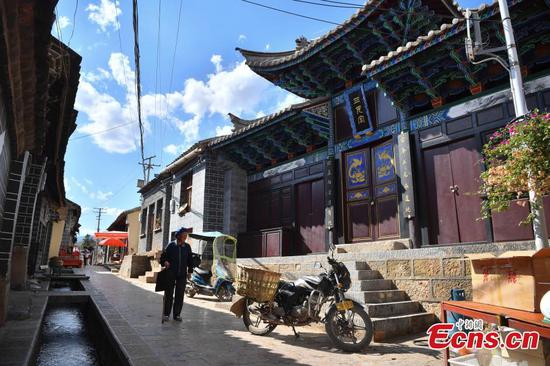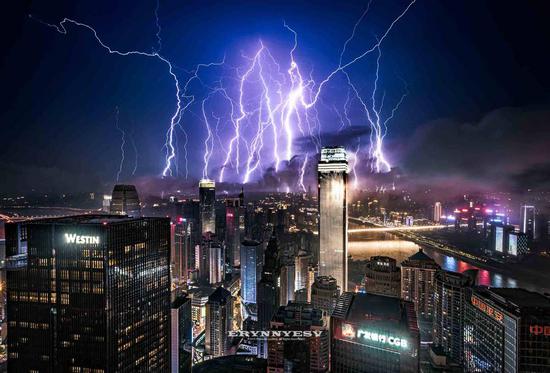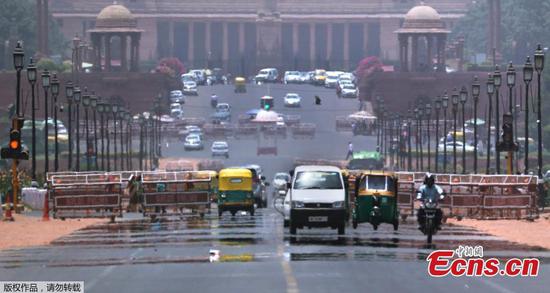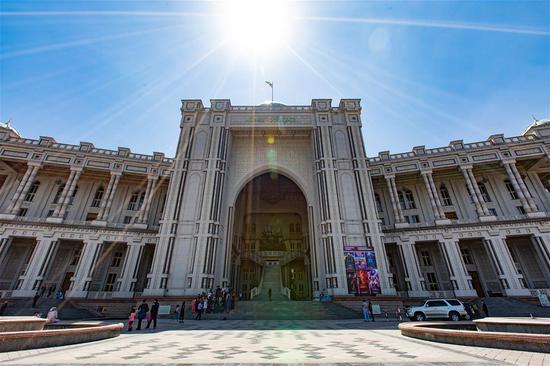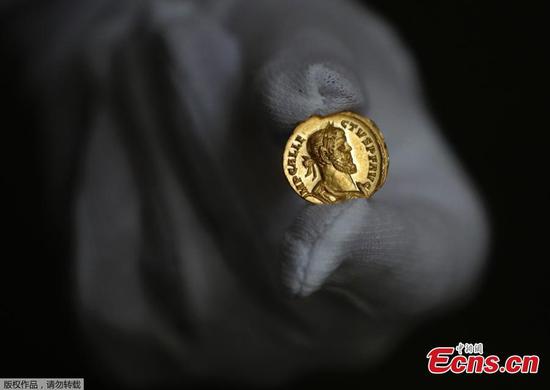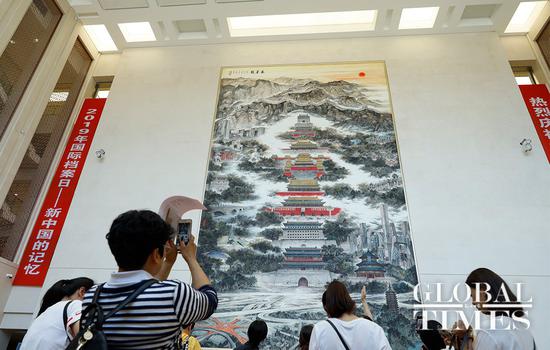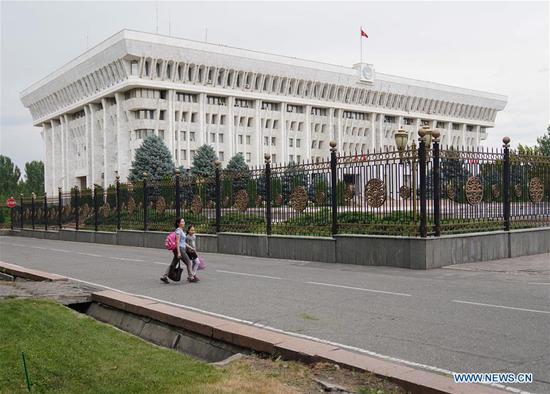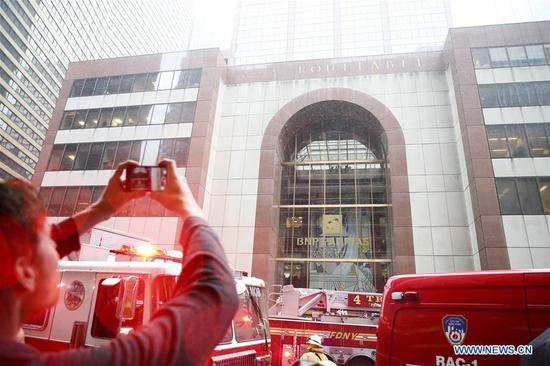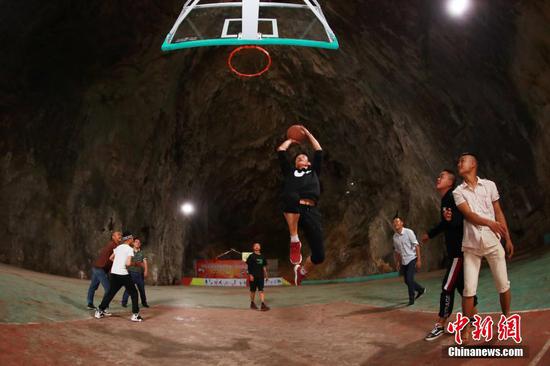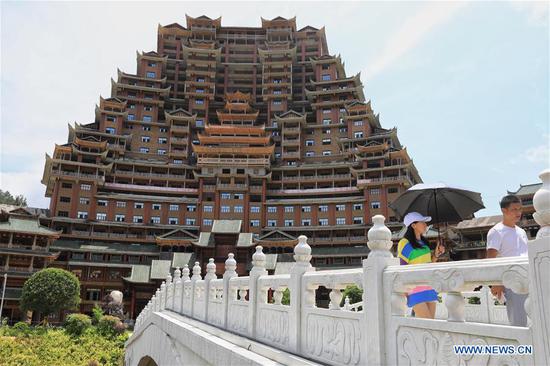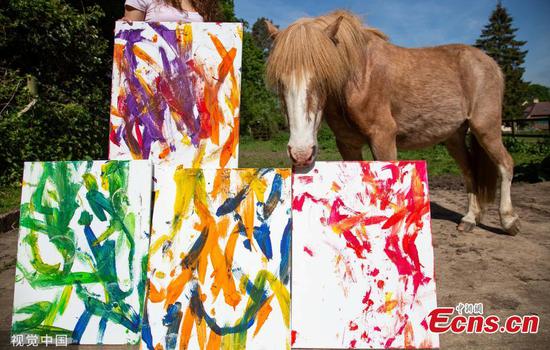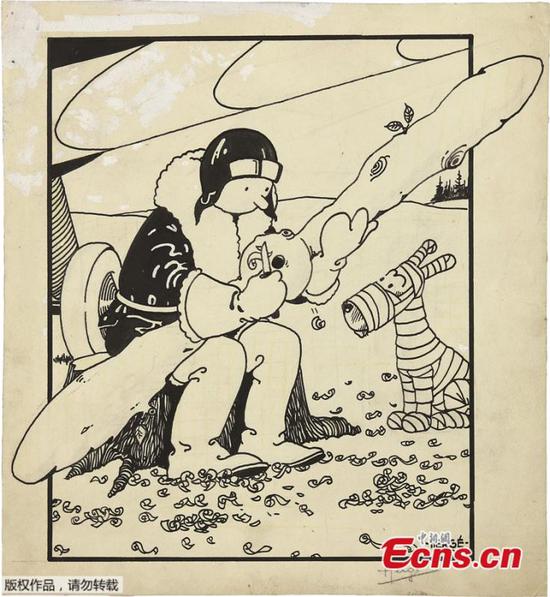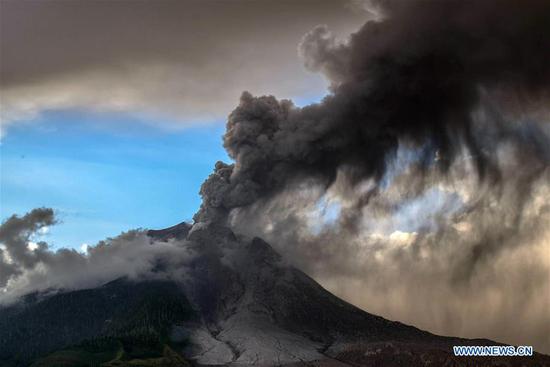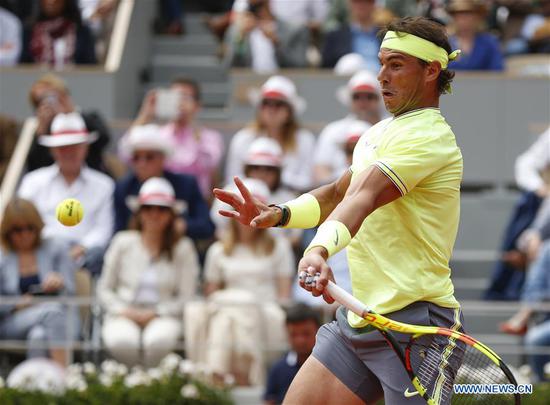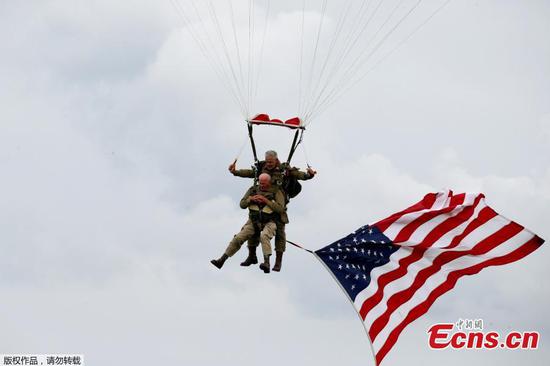
Graduate students from China attend the Columbia University Commencement ceremony in New York, the United States, May 22, 2019. (Photo/Xinhua)
Charles Benjamin, a neuroscience student at Stanford University, lingered in front of a painting at a Chinese ethnic art exhibition at the university.
"It's really beautiful — the forms of the painting reflect some of the culture," he said.
Thanks to increasing cultural exchange programs in the past years, Benjamin has more opportunities to learn about Chinese culture on campus. He has even started learning the language.
"Given how important the relationship between the US and China is on the world stage right now, I think it's important for individuals from two different cultures to get to know each other," he said. "I think in that way it can help ultimately reduce tensions that may exist on national and international levels."
Such exchanges, however, may become more collateral damage from the tensions between the two countries, which have expanded from trade to the educational space.
Citing "espionage concerns", the US State Department has shortened the length of visas for Chinese graduate students in fields such as aviation, robotics and advanced manufacturing from five years to one year.
There are also reports of visa delays and denials, and prolonged visa checks for Chinese students and researchers.
A San Francisco-based tour operator said more than 100 Chinese students and their parents have canceled an exchange program in the US this summer. "Some of them were denied visas, and some of them gave up on applying for visas," said the operator, who asked to remain anonymous.
He said it's unusual to see such a large number of cancellations after deposits had been paid.
Last week, China's Ministry of Education urged students to assess the risks before deciding to study in the United States, given tightened visa restrictions.
China accused the US of politicizing normal China-US educational exchanges by using the "China threat" and "Chinese infiltration" as excuses.
There has been more scrutiny of international students, as the Trump administration has adopted stricter controls on immigration and taken a hard line toward China.
Benjamin said he hasn't heard any particular issue from his exchange student friends, but in general he believes it's harder to get the visas as the process has become more intensive.
"In this era of rapid globalization, we should be trying to reach out to each other and trying to bridge culture. America has been built on the strength of immigrants and people who want to come here. I think it's sad that we are turning people like that away, who would be wonderful contributors to our society," Benjamin said.
"I don't know how it will be solved, but I do think having people from different cultures meet each other is really a good way of putting a human face to another country and culture," he said.
Stanford's Department of Art and Art History has been actively engaged in exchanges with Chinese counterparts, including s faculty member's residency project in Dunhuang, an ancient Chinese city on the Silk Road, and annual major lectures involving historians and practicing artists.
"We are trying to get the momentum going as much as we can," said Richard Vinograd, the Christensen Fund professor in Asian art at Stanford.
"I regret that it seems [to be a] more complicated bureaucratic process to go through for them (Chinese students and researchers) to get their visas and applications approved. It poses kind of a barrier for scholar exchanges. It's unfortunate," he said.
In the past year, some senior officials of the Trump administration, including FBI Director Christopher Wray, have portrayed Chinese studying in the US as threats to national security.
Republican Senator Ted Cruz of Texas and Republican Congressman Francis Rooney of Florida have recently reintroduced the Stop Higher Education Espionage and Theft Act, which is intended to prevent the so-called Chinese espionage efforts at US universities.
Some other Republican lawmakers are writing bills to require more reporting from colleges and universities about funds from China. The bills also would prohibit students or scholars with ties to the Chinese military from entering the US or set new limits on access to sensitive academic research.
The undercutting of scholarship and people-to-people contact between the two nations has seriously worried Stanley Kwong, an adjunct professor at the University of San Francisco.
"When political tensions intrude into the academic and educational realm, the impacts are more damaging and far-reaching," he said.
Kwong said a friend who works at a central US university famous for engineering and technology majors, told him more than 40 percent of the Chinese students applying for the artificial intelligence major have been denied visas.
Most of Kwong's students haven't been affected so far, because they major in business, not among the "critical" areas listed by the Trump administration. But his university has seen a 25 percent drop in Chinese student enrollment this year.
"We are seeing discrimination targeted specifically at our Chinese students and scholars," Jenny Lee, a professor of educational policy and practice at the University of Arizona, told The Scientist magazine this month.
"There's a chilling effect," said Frank Wu, a law professor at the University of California, Hastings College of the Law, and president of the Committee of 100, a group of Chinese Americans dedicated to advancing US-China relations. "I get calls and emails every week from Chinese immigrants who are deeply concerned about their careers, their lives, and all of these issues," he told the magazine.
There were more than 360,000 Chinese students in the US in the 2017-2018 school year, according to the Institute of International Education. Many universities have reported declines in Chinese enrollment the past two years.
"We have the highest level of politics that makes cultural ethnic divisions. It's unfortunate to see the kind of regression to this narrow-minded sense of ethnic cultural identity," said Vinograd.
"I think there's a visible effect, and it's tragic to see this happening in universities," he said.










